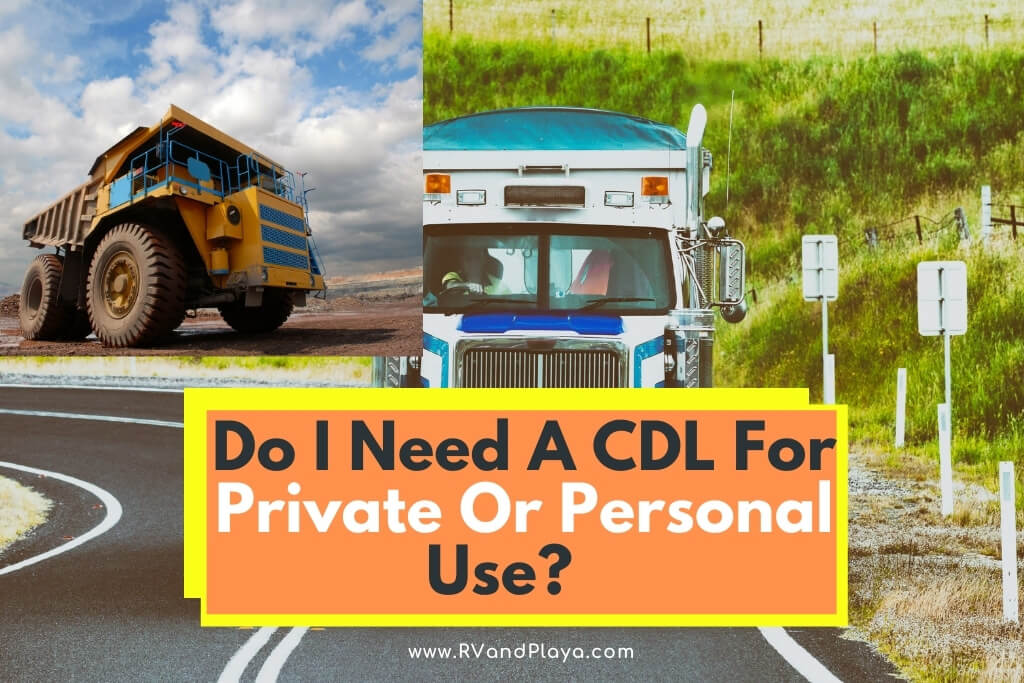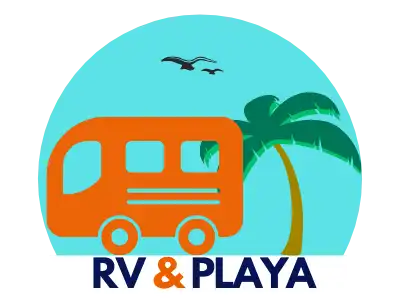Do you know if you need a CDL for private or personal use? this is one of the questions our readers ask a lot. Well, we´ve got you covered.
When it comes to obtaining a CDL, there are certainly important questions that need to be asked, especially for those who aren’t getting one to enter the job market (truck drivers, bus drivers, long-haul truckers, trailer etc).
So, the important question is do you need a CDL for private or personal use? There are a number of exemptions for personal or private use vehicles. Both state and Federal law exempts personally owned and used vehicles that fall under certain categories, such as farm equipment, military operations, and some POVs.
The CDL was created—along with uniform state and federal regulations—to create a single type of license that all heavy equipment, and certain qualifying vehicles, drivers would use to show their qualifications.
By necessity, CDL licenses can’t apply to absolutely everyone for a range of reasons that inevitably complicate the licensing process.
There are still rules and applicable standards for POV drivers who don’t need to apply for and receive a Commercial Driver’s License.
Table of Contents
Who Doesn’t Need A CDL?
There are a number of individuals and/or segments of the working population that don’t need a CDL to operate equipment that would normally fall under state and federal guidelines.
Farm Equipment Operators
Farm-to-market is not prohibited by state and federal law and no CDL is required so long as the equipment is operated in this manner.
This doesn’t cover over-the-road transportation of grain or other heavy haulers that fall under the label of commercial activity.
This exclusion is extended to farmers, their families, and their employees, along with:
- Farm activity cannot extend beyond 150 air miles
- Can’t be operated under a contract or commercial activity
- Includes loads hauled between farms and to the market
- Nurseries and agricultural operations fall under the same exempted umbrella
So, there’s a lot of leeways extended to farmers, their families, and employees so long as the activity doesn’t extend into commercial activity or beyond the 150-mile threshold.
Read also: What’s The Longest Trailer You Can Pull Without A CDL?
Firefighting and Military Equipment Operators
This doesn’t apply to all states—despite the effort to consolidate the CDL requirements—but for some, firefighters and military operators are known to have undergone extensive training with the vehicles and equipment they operate and are therefore exempted from CDL requirements.
The exception extends to activities that fall under firefighting or military operations only.
For instance, a military operator that is qualified to operate a vehicle with a GVWR of more than 26,000lbs, can’t hop in a similarly weighted, civilian/commercial vehicle and drive around.
Recreation Vehicle Operators
This only applies when the vehicle is being used for private use. Also, both POV and farm drivers and operators have to acquire “farm” plates and undergo training for the specific types of vehicles they’re driving.
Some of this training is exactly the same as the training drivers undergo to receive a CDL.
Also, drivers of any heavy equipment—regardless of the fact that a CDL is not required—have to be at least 21 years of age.
What About Semi-Trucks?
The commercial use rule still applies here as well. So long as you own and are operating a semi-truck that has no attachment to commercial activity whatsoever, then you do not need a CDL.
The problem lies in the fact that almost anything can be classified as “commercial use” if a state’s Department of Transportation pulls you over.
The only certainty surrounding whether or not a CDL must be obtained for the personal use of a semi-truck is the vehicle’s GVWR (Gross Vehicle Weight Rating).
GVWR is a rating assigned to vehicles to show what weight limit they can reach before exceeding weight standards.
The problem with GVWR is that it isn’t a well-understood rating, especially for those who do not hold a commercial driver’s license or have never undergone the training necessary to obtain one.
The weight of your vehicle, with or without a load (trailer, boxcar, etc.), cannot exceed a GVWR of 26,0000lbs.
If it does, there is no exception for those who don’t wish to obtain a CDL, regardless of whether or not it is used as a personal or commercial vehicle.
Read also: How to Measure Towing Capacity, GVWR, GCWR, Truck, Trailer
This is the simplest rule applied because it quite literally applies to everyone. Also, it means that even if you are driving a semi with an empty trailer, if your GVWR exceeds 26,000lbs, and your current weight is 15,000lbs, you will have to have a CDL to drive it.
GVWR is a “combined” rating. That means that the 26,000lb limitation applies to the semi itself, but expands to apply to a trailer if you have one attached.
A semi-truck alone, without an attachment, that doesn’t exceed 26,000lbs is fine. But if you attach a trailer, its combined potential weight, along with the weight of the semi, is calculated.
That’s why you could be in violation of the rules even if you are riding around with an empty trailer.
It’s not about what it weighs, but whether its potential weight exceeds 26,000lbs.
Read also: What Truck Can Tow 30,000 lbs (5 Examples of Heavy Duty Pickup Trucks)
What Is Defined As “Commercial Use?”
According to the Federal Motor Carrier Safety Administration, commercial use is defined as trade, traffic, or transportation between states or transportation that affects trade, traffic, or transportation across state lines.
When stated above that almost anything can be considered commercial use, this is what it comes down to, an inherently vague definition of exactly what constitutes or affects trade, traffic, or transportation across state lines.
Because of this loose definition, travel across state lines for non-CDL holders, in heavy equipment or semis, could prove problematic, with much of it determined by whoever pulls you over and what sort of day they’re having.
So long as your GVWR is less than 26,000lbs and you’re not carrying anything that could be misconstrued as “trade,” you’ll probably be alright.
Final Word
You don’t need to have a CDL if you fall in one of the categories of personal use, firefighters, military, or farmers.
However, it’s safe to assume you will probably be pulled over at some point to check your status and evaluate your cargo.
So long as your Gross Vehicle Weight Rating is below 26,000lbs and you’re not engaging in commercial use, any state or federal law enforcement is going to have trouble citing you for any violations.
Here are some of my favorite services, products, and Stores
Thank you for reading this article. I hope it helps you find the most recent and accurate RV, camping information. Here are some services, products, and Stores that I use and hope you´ll also find helpful.
There are affiliate links, so if you do decide to use any of them, I´ll earn a small commission. But in all honesty, these are the exact what I use and recommend to everyone, even my own family.
To see all my of most up-to-date recommendations, check out this resource that I made for you!
References
Recent Posts
Trailer Wiring Diagrams:19 Tips Towing Electrical Wiring Installation
Are you looking for trailer wiring diagrams and helpful guide how to wire trailer, lights, Brake, routing, wires and connectors? Look no more. We´ve got you covered. If you are planning on towing...
What's The Longest Trailer You Can Pull Without A CDL? (Explained)
Have you ever wondered what´s the longest trailer you can pull without a CDL? Look no more. We´ve got you covered. We are not going to lie to you here. The Commercial Driver License (CDL) laws...


